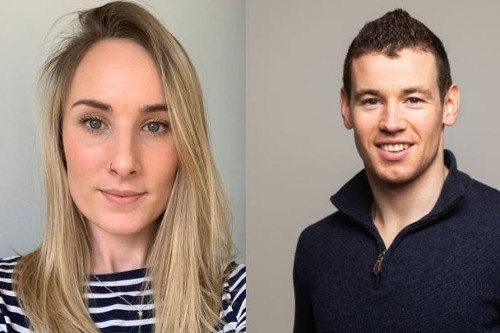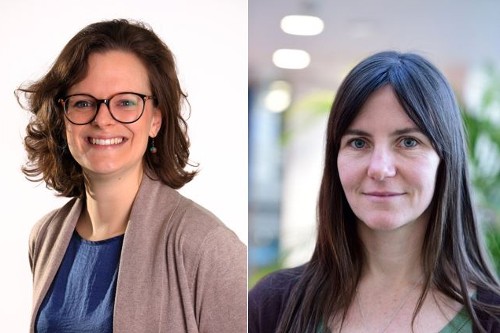Dr Emma Anderson, Dr Rachel James, Dr Peter Dunne and Dr Sinead English have been selected for their work on dementia, climate change, respecting trans and non-binary identities and nutrition and immunity in pregnancy, respectively.
Dr Emma Anderson of the Bristol Medical School and her team are aiming to understand the genetic and environmental causal determinants of dementia with a vascular component (DVC). She said:
"The overall aim of my UKRI Future Leaders Fellowship is to reduce the global burden of vascular dementia. The fellowship will help me to identify genetic and environmental determinants of vascular dementia, which is understudied despite contributing to over 50% of all dementia cases.
“I will be genotyping about 7000 brains in the UK Brain Bank Network. This will enable me to perform the largest genetic study of vascular dementia to date, which will help us to develop tools to identify susceptible individuals and establish both potential prevention options and therapeutic drug targets. The genotype data generated will be returned to the brain banks, which will form a fantastic resource for other scientists for decades to come."
Dr Rachel James of the School of Geographical Sciences will use the Fellowship to focus on plugging the gap between climate model outputs and decision support. Her research will involve re-orienting climate science analysis, characterising possible, plausible and probable futures and designing and refining a framework for possible climate outlooks. She said: “I’m absolutely delighted to be awarded this fellowship. It will take my research – and ambition! – to the next level. I can’t wait to get stuck into the research programme, which is designed to transform information about future changes in climate.”
The Bristol Law School’s Dr Peter Dunne’s Fellowship will explore the rights of trans and non-binary populations in the family law of England and Wales. He said: “I am very grateful to UK Research and Innovation, and to the University of Bristol, for their generous support in allowing me to pursue this Future Leaders Fellowship.
“In recent years, the rights and experiences of trans and non-binary persons within the family justice system has become a source of intense legal, political and social debate. I hope that my research can, in a productive manner, help to inform and advance these sensitive conversations in a way that respects the dignity and humanity of all persons involved.
“The University of Bristol Law School, and the inspiring and supportive colleagues that I work with every day, is the ideal environment in which to undertake this project, and I am very excited for the opportunities to explore and learn which lay ahead.”
Dr Sinead English of the School of Biological Sciences is aiming to understand consequences for mothers and offspring of mounting an immune response in pregnancy, and how these depend on maternal nutritional state. She explained: "Pregnancy is a critical period determining health outcomes for mothers and children alike. Across the world, pregnant mothers face many challenges from exposure to infectious disease through to lack of access to nutrition. My project will take an innovative approach, bringing insights from evolutionary biology, to understand how these challenges interact to determine maternal and child health. My team will tackle these questions using mathematical models, experiments on unusual model insects - flies and cockroaches which give birth to live young, and analyses of cross-cultural cohort studies, including the Avon Longitudinal Study of Parents and Children (UK) and from the Early Nutrition and Immune Development trial (The Gambia).”
UKRI Chief Executive, Professor Dame Ottoline Leyser, said: “The Future Leaders Fellowships provide researchers and innovators with the freedom and generous long-term support to progress adventurous new ideas, and to move across disciplinary boundaries and between academia and industry.
“The fellows announced today provide shining examples of the talented researchers and innovators across every discipline attracted to pursue their ideas in universities and businesses throughout the UK, with the potential to deliver transformative research that can be felt across society and the economy.”
£100m new support for further Fellowships
Building on the success of the £900 million invested in the first six rounds of Future Leaders Fellowship, UKRI has additionally committed £100 million for a seventh round, with an eighth round planned to follow.
The scheme helps universities and businesses in the UK recruit, develop and retain the world’s best researchers and innovators, regardless of their background. Researchers can apply for substantial long-term funding to support their research or innovation and develop their careers, with each fellowship will last four to seven years.
The projects will be an important part of the government’s ambition to cement the UK’s status as a global leader in science, research and innovation.

